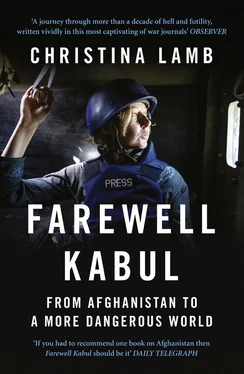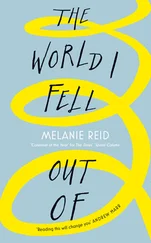It seemed ISI had calculated that however the Americans retaliated in Afghanistan, they would eventually lose patience, and like all foreigners before them be driven out. ‘We knew the Americans could not win militarily in Afghanistan,’ I was told by General Ehsan ul Haq, who later replaced Mahmood as ISI chief. Pakistan would, however, still be next-door, so it was understandably hedging its bets. ‘The Americans forget other people have national interests too,’ said Maleeha Lodhi, then Pakistan’s Ambassador to Washington.
From Quetta I went to Rawalpindi to see General Hamid Gul, who had been head of ISI when I lived in Pakistan, running the Afghan jihad. He was virulently anti-American, blaming the US for his dismissal in May 1989. It was the first time I had spoken to him since my deportation, and he insisted to me that the people who had abducted and interrogated me were ‘rogue agents’. He still lived in an army house, and somehow it seemed to me that he was still involved. He had personally known bin Laden, and encouraged Arabs to come and fight against the Russians in Afghanistan, setting up reception committees, which as he said the CIA was very happy to use at the time. Indeed, on his mantelpiece was a piece of the Berlin Wall sent to him by German Chancellor Helmut Kohl. It was inscribed: ‘With deepest respect to Lt Gen Hamid Gul who helped deliver the first blow.’ ‘You in the West think you can use these fundamentalists as cannon fodder and abandon them, but it will come back to haunt you,’ he had told me in a rare interview just after the Soviet withdrawal. At the time I had not understood what he meant.
General Gul insisted that 9/11 was orchestrated not by bin Laden but Mossad, the Israeli spy agency, to set the West against Muslims and provide an excuse to launch a new Christian Crusade. ‘No Jews went to work in the World Trade Center that day,’ he claimed. He was dismissive about the latest foreigners to enter Afghanistan. ‘The Russians lost in ten years, the Americans will lose in five,’ he said. ‘They are chocolate-cream soldiers, they can’t take casualties. As soon as body bags start going back, all this “Go get him” type of mood will subside.’
Meanwhile, we waited. War had come to America, 3,000 people had been killed in the Twin Towers, and we knew the US administration would soon retaliate. ‘My blood was boiling,’ Bush later wrote in his memoir. ‘We were going to find out who did this and kick their ass.’ In a televised address to both houses of Congress nine days after 9/11, he told the nation that ‘every necessary weapon of war’ would be used to ‘disrupt and defeat the global terror network’. He warned that ‘Americans should not expect one battle, but a lengthy campaign unlike any other we have ever seen.’
There was one problem. When 9/11 happened, the CIA did not have a single agent in Afghanistan. Only a handful had been there in the previous decade, and they were in the north. The CIA had no contacts among Pashtuns in the south. The FBI had only one officer dedicated to bin Laden. At Fort Bragg the top US special forces continued to be taught Russian, as if the Cold War had not gone away.
While journalists quickly found their way into Northern Alliance strongholds, renting all the available cars and houses, the military took much longer to arrive. The first Americans into Afghanistan after the journalists were a CIA team headed by a man who, at fifty-nine, had thought his days in the field were long over. One of the few agents to have gone to Afghanistan in recent years, Gary Schroen had been involved with Afghanistan on and off since 1978, and had close contacts with the Northern Alliance. He was preparing for retirement when he was called up by the Counter-Terrorism Center (CTC), much to his wife’s annoyance. Seventeen days after 9/11 his seven-man team were on an old Russian helicopter into the Panjshir valley to link up with the Northern Alliance.
Apart from communications equipment, the most important part of their baggage was a large black suitcase containing $3 million in cash. On the first night they gave $500,000 to Engineer Aref, intelligence chief for the Northern Alliance, followed by $1 million the next day to Marshal Fahim, who had succeeded Ahmat Shah Massoud as military commander. More money was sent, and within a month they had handed out $4.9 million.
The plan was to send teams of US special forces to join up with Afghan commanders. The Americans would then direct airstrikes using SOFLAMs (Special Operations Forces Laser Acquisition Markers) to pinpoint targets. They also had GPS systems to provide coordinates, as these could be used in all weathers. B52s would then fly over and drop 2,000-pound smart bombs, which would pulverise the target.
However, when the bombing started, almost a month after 9/11, bureaucratic delays and infighting in Washington meant there was still not a single US soldier inside Afghanistan. The only on-the-ground information was coming from Schroen’s CIA team and the Afghans.
From the start there was friction. America wanted intelligence on al Qaeda safe houses and camps, and most of all they wanted the man behind 9/11. Before he had left the US, Schroen’s boss Cofer Black had told him, ‘I want you to cut bin Laden’s head off, put it on dry ice, and send it back to me so I can show the President.’ The Northern Alliance commanders were more interested in targeting Taliban front lines so they could advance on Kabul and take power.
On Friday, 7 October, President Bush stood in the Treaty Room of the White House and addressed America, announcing the launch of Operation Ultimate Justice (which was quickly renamed Operation Enduring Freedom). A few hours earlier – night-time in Afghanistan – an awe-inspiring fleet of seventeen B1, B2 and B52 bombers had taken off from bases in Missouri and Diego Garcia to drop their bombs on one of the poorest places on earth. Alongside them were twenty-five F14 and F18 fighter jets flown off the decks of aircraft carriers USS Enterprise and USS Carl Vinson in the Arabian Sea. Fifty Tomahawk missiles were launched from American ships and a British nuclear submarine. Several had been painted with the letters ‘FDNY’ – Fire Department of New York – in remembrance of the firefighters who lost their lives trying to rescue victims at the Twin Towers. The heaviest bombing that night was carried out by the B52s, which rained 2,000-pound JDAMs as well as hundreds of unguided bombs aimed at taking out the Taliban air force and suspected al Qaeda training camps in eastern Afghanistan. That first night they struck thirty-one targets.1 The US State Department sent a cable to Mullah Omar via Pakistan informing him that ‘every pillar of the Taliban regime will be destroyed’.
In my hotel room in Quetta I watched on CNN the Pentagon videos of the planes setting off on the bombing raids, and the flashes as targets were hit. Taken on night-vision cameras, the footage was green, with a ticking digital timer running at the bottom, and looked like a video game. I wondered what the Americans could bomb in that country of ruins, with no real infrastructure. Soon they found themselves running out of targets. All the air power in the world was of little use when what they were really fighting was an ideology, not a conventional army.
Our own movements were curtailed by Pakistani minders. For our ‘security’ we were not allowed out of the hotel without the company of one of the ISI agents who frequented the lobby. I’d found a Fuji photographic shop that had a back door into the market through which I could be met by an old friend. He would whisk me off to meet tribal elders or Afghan commanders so they could speak freely while my minder was watching TV in the Fuji shop. I knew I was testing their patience, so sometimes I met people in what we called ‘Nuclear Mountain Park’ – its centrepiece was a model of Chagai in the Baluch hills, where Pakistan had carried out its first nuclear tests three years earlier on what was referred to as ‘Yaum-e-Takbeer’, or Allah’s Greatness Day. Every evening people came out to walk round and round the model nuclear mountain, eating ice creams from a cart decorated with red-tipped rockets.
Читать дальше












